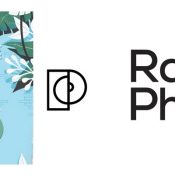Fanny Nègre (doctorante, CLIPSYD, Université Paris Nanterre), Maud Lemercier‑Dugarin (MC, LPCN, Université de Caen), Romain Gomet (Dr, APHP) et leurs collaborateurs, ont publié un nouvel article.
Nègre, F., Lemercier-Dugarin, M., Gomet, R., Pelissolo, A., Malbos, E., Romo, L., & Zerdazi, E. H. (2024). Study on the efficiency of virtual reality in the treatment of alcohol use disorder: study protocol for a randomized controlled trial. Trials, 25(1), 417. https://doi.org/10.1186/s13063-024-08271-x
Abstract
Context According to the World Health Organization, alcohol is a major global public health problem, leadingto a significant increase in illness and death. To treat alcohol use disorders, new therapeutic tools are being promoted,among which virtual reality (VR) shows promise. Previous research has demonstrated the efficacy of VR in reducingalcohol cravings in patients, but there is a lack of data on its effectiveness in maintaining abstinence or reducingconsumption in recently abstinent individuals.The E‑Reva study aims to compare the efficacy of a treatment strategy combining virtual reality cue exposure therapy(VR‑CET) and cognitive behavioral therapy (CBT) with conventional CBT in reducing alcohol consumption and cravingin patients with alcohol use disorder (AUD). In addition to this primary objective, the study will compare the effectsof VR‑CET combined with CBT on anxiety, depression, rumination, and feelings of self‑efficacy versus conventional CBT. Methods This prospective randomized controlled trial will be conducted over 8 months in four addiction departmentsin France. It includes two parallel groups: i) the VR‑CET + CBT group, and ii) the CBT‑only group, which serves as acontrol group.Participants will be recruited by the investigating doctor in the addiction centers. The sample will consist of 156patients diagnosed with AUD and abstinent for at least 15 days.Both treatment groups will participate in four group CBT sessions followed by four individual sessions: i) the VR‑CETgroup will be exposed to virtual environments associated with alcohol‑related stimuli, ii) the CBT‑only group willreceive traditional CBT sessions. After completion of the 8 sessions, patients will be followed up for 6 months. The pri‑mary outcome is the cumulative number of standard drinks consumed at 8 months, assessed using the TLFB method. Discussion Despite the promise of VR‑CET to reduce the desire to drink, the effect on alcohol consumption remainsuncertain in the existing literature. Our protocol aims to address the limitations of previous research by increasingsample size, targeting consumption reduction, and incorporating neutral environments. E‑Reva aims to enrich theliterature on the use of VR in the treatment of AUD and open new perspectives for future interventions.
Il est consultable via ce lien : https://trialsjournal.biomedcentral.com/articles/10.1186/s13063-024-08271-x
Celui-ci a été publié dans la revue Trials (IF: 2.0) une revue qui a pour objectif d’encourager des approches innovantes en recherche clinique afin de favoriser les échanges et la visibilité de nouveaux essais cliniques et d’expérimentations en santé humaine.
Maud Lemercier-Dugarin est enseignante-chercheuse au LPCN. Elle est spécialisée dans la prise en charge des addictions sans substance (addiction aux jeux d’argent et cyberaddictions) et mène des recherches sur l’évaluation des Thérapies par Exposition à la Réalité Virtuelle (TERV), sur la prévention du jeu pathologique en population étudiante et sur les comportements de socialisation dans les jeux vidéo en ligne multijoueur.







